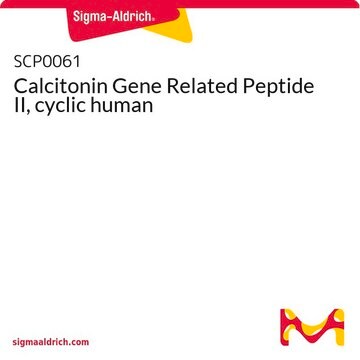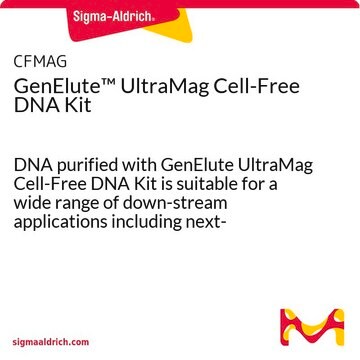SEQXE
SeqPlex DNA Amplification Kit
For use with high throughput sequencing technologies, Whole Genome Amplification kit designed to facilitate Next Gen Sequencing.
Synonym(s):
SeqPlex Enhanced DNA Amplification Kit, WGA kit, whole genome amplification kit
Sign Into View Organizational & Contract Pricing
All Photos(5)
About This Item
UNSPSC Code:
41121800
NACRES:
NA.55
Recommended Products
technique(s)
whole genome amplification: suitable
shipped in
wet ice
storage temp.
−20°C
Looking for similar products? Visit Product Comparison Guide
Related Categories
General description
SeqPlex™ Enhanced DNA Amplification Kit for whole genome amplification (WGA) is designed to facilitate next-generation sequencing (NGS) from extremely small quantities or from degraded/highly fragmented DNA. The yields from chromatin immunoprecipitation (ChIP) or formalin-fixed paraffin-embedded tissue samples (FFPE) are often less than required for successful next generation sequencing library preparation. The SeqPlex kit allows the user to pre-amplify these and other small quantity/highly fragmented DNA samples for input into a NGS workflow. This kit is an extension of the WGA product line and has been developed to integrate into the Illumina®, SOLiD™, or 454 sequencing workflows.
Application
SeqPlex™ DNA Amplification Kit has been used for whole genome amplification.
Features and Benefits
- Random priming technology amplifies fragmented DNA such as ChIP or FFPE
- Facilitates sequencing from as little as 100 pg of ChIP DNA
- Enhanced primers for complete genome coverage, minimal sequence bias, primer removal, and amplicon size ideal for next gen sequencing
- Compatible with Illumina®, SOLiD™, or 454 library prep for next generation sequencing
Other Notes
SEQXE-500RXN is manufactured on-demand. Contact technical services at techserv@sial.com for more information.
Legal Information
Illumina is a registered trademark of Illumina, Inc.
SOLiD is a trademark of Applera Corporation or its subsidiaries in the US and/or certain other countries
SeqPlex is a trademark of Sigma-Aldrich Co. LLC
iCAT is a registered trademark of University of Washington
Kit Components Also Available Separately
Product No.
Description
SDS
- W4502Water, Nuclease-Free Water, for Molecular BiologySDS
- Library Preparation Buffer
recommended
Product No.
Description
Pricing
required but not provided
Product No.
Description
Pricing
Signal Word
Danger
Hazard Statements
Precautionary Statements
Hazard Classifications
Resp. Sens. 1
Storage Class Code
10 - Combustible liquids
Flash Point(F)
Not applicable
Flash Point(C)
Not applicable
Certificates of Analysis (COA)
Search for Certificates of Analysis (COA) by entering the products Lot/Batch Number. Lot and Batch Numbers can be found on a product’s label following the words ‘Lot’ or ‘Batch’.
Already Own This Product?
Find documentation for the products that you have recently purchased in the Document Library.
Customers Also Viewed
Joshua A Udall et al.
Frontiers in plant science, 10, 1541-1541 (2019-12-13)
One of the extraordinary aspects of plant genome evolution is variation in chromosome number, particularly that among closely related species. This is exemplified by the cotton genus (Gossypium) and its relatives, where most species and genera have a base chromosome
Dimiter Kunnev et al.
Journal of biological methods, 2(4) (2015-01-01)
Nascent strand capture and release (NSCR) is a method for isolation of short nascent strands to identify origins of DNA replication. The protocol provided involves isolation of total DNA, denaturation, size fractionation on a sucrose gradient, 5'-biotinylation of the appropriate
Takuya Hayakawa et al.
Cytogenetic and genome research, 161(8-9), 437-444 (2021-11-25)
E/L Repli-seq is a powerful tool for detecting cell type-specific replication landscapes in mammalian cells, but its potential to monitor DNA replication under replication stress awaits better understanding. Here, we used E/L Repli-seq to examine the temporal order of DNA
Syuzo Kaneko et al.
Cancers, 13(9) (2021-05-01)
Although chromatin immunoprecipitation and next-generation sequencing (ChIP-seq) using formalin-fixed paraffin-embedded tissue (FFPE) has been reported, it remained elusive whether they retained accurate transcription factor binding. Here, we developed a method to identify the binding sites of the insulator transcription factor
SF3B1 mutant MDS-initiating cells may arise from the haematopoietic stem cell compartment.
Mian S A, et al.
Nature Communications, 6, 10004-10004 (2015)
Our team of scientists has experience in all areas of research including Life Science, Material Science, Chemical Synthesis, Chromatography, Analytical and many others.
Contact Technical Service









